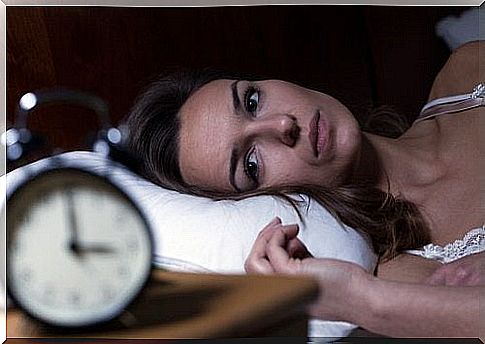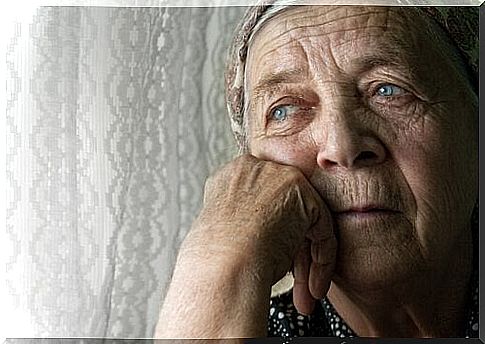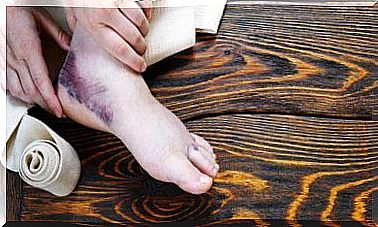Did You Know That Loneliness And Insomnia Can Go Hand In Hand?

Loneliness and insomnia have more in common than we might think. People who are isolated or have a limited social life can be exposed to insomnia.
Social media and the internet have created the perfect conditions for people to have less close contact with those around them. In addition, when people pull away or treat you rudely, it can lead to you being trapped in your own controlled but lonely room.
This predisposition to isolation can have many disadvantages, and one of the worst can be the difficulty in getting enough sleep.
Lonely people are 25% less likely to sleep well
When a group of researchers from King’s College (in the UK) conducted a study on sleep habits, they expected to establish a link between insomnia and several different lifestyle factors. However, this was not what happened.
Their research studied factors such as employment status, whether or not they have children, alcohol consumption and even genetic background.
Ultimately, none of these had a direct relationship to insomnia. But one aspect it had: a feeling of loneliness.
In fact, people who felt alone were 25% more likely to suffer from this unpleasant sleep disorder.
And more worryingly, the study on insomnia was only conducted with young people between 18 and 19 years old.
Victims and insomnia

The trend was even clearer among those who reported having suffered abuse or violence in childhood. Abuse, rape and bullying can trigger isolation, which further affects the sleep of those who have experienced it.
All this information invites us to reflect on the influence that trauma has on a person’s sleep quality and quantity. Being abused involves stress, confusion, anxiety and psychological changes. But this is not the only crucial study on the subject.
The same trend is happening in adults
In 2011, another group of researchers conducted a similar study in rural South Dakota. They focused on 95 adults who said they felt “alone,” even though they were not completely isolated.
The study failed to find a definite association between loneliness and insomnia. However, most participants described a phenomenon known as fragmented sleep. This means that you are constantly waking up from rest.
Both studies came to similar conclusions: the perception of loneliness generates insomnia, which is negative for our health.
Anthropological hypothesis

Overall, the researchers from the first study believe that the relationship between loneliness and insomnia is a human evolutionary response. From this perspective , loneliness in the human psyche transforms into insecurity and feelings of helplessness.
When we perceive that we are isolated, the brain is automatically prepared for prevention, struggle and escape. This may explain why people are constantly waking up at night.
In reality, it may be a self-treatment mechanism that is activated when you feel lonely. This will be especially important for people who are recent graduates (young people), or those who have recently moved to a new place.
Learn to be independent
The results from both studies confirm the importance of learning to be independent, as part of the development as a person. Preparation from a young age can make it easier to endure changes in adulthood, and parents have a crucial role to play in all of this.
How can you help young people become more independent? Each parent will probably have their own method, but what is important is that children and young people are placed in controlled situations, where they need to take care of themselves.
A sense of mastery can be another key to establishing stability in newly independent children. Regular phone calls and emails can help stabilize them emotionally.
It is also a good idea for parents to plan a weekend visit. That way, they can contribute to the children’s emotional stability. This helps in renewing their self-esteem, while also reminding them that they are not alone.
How to fight loneliness and insomnia

Oddly enough, this age of communication may be one of the loneliest historical periods in humanity. The things that bring people together socially must be renewed, for our own physical and emotional well-being. People who have been victims of abuse, those who have recently moved or lost their spouse, and young and old are the most vulnerable to feelings of isolation.









